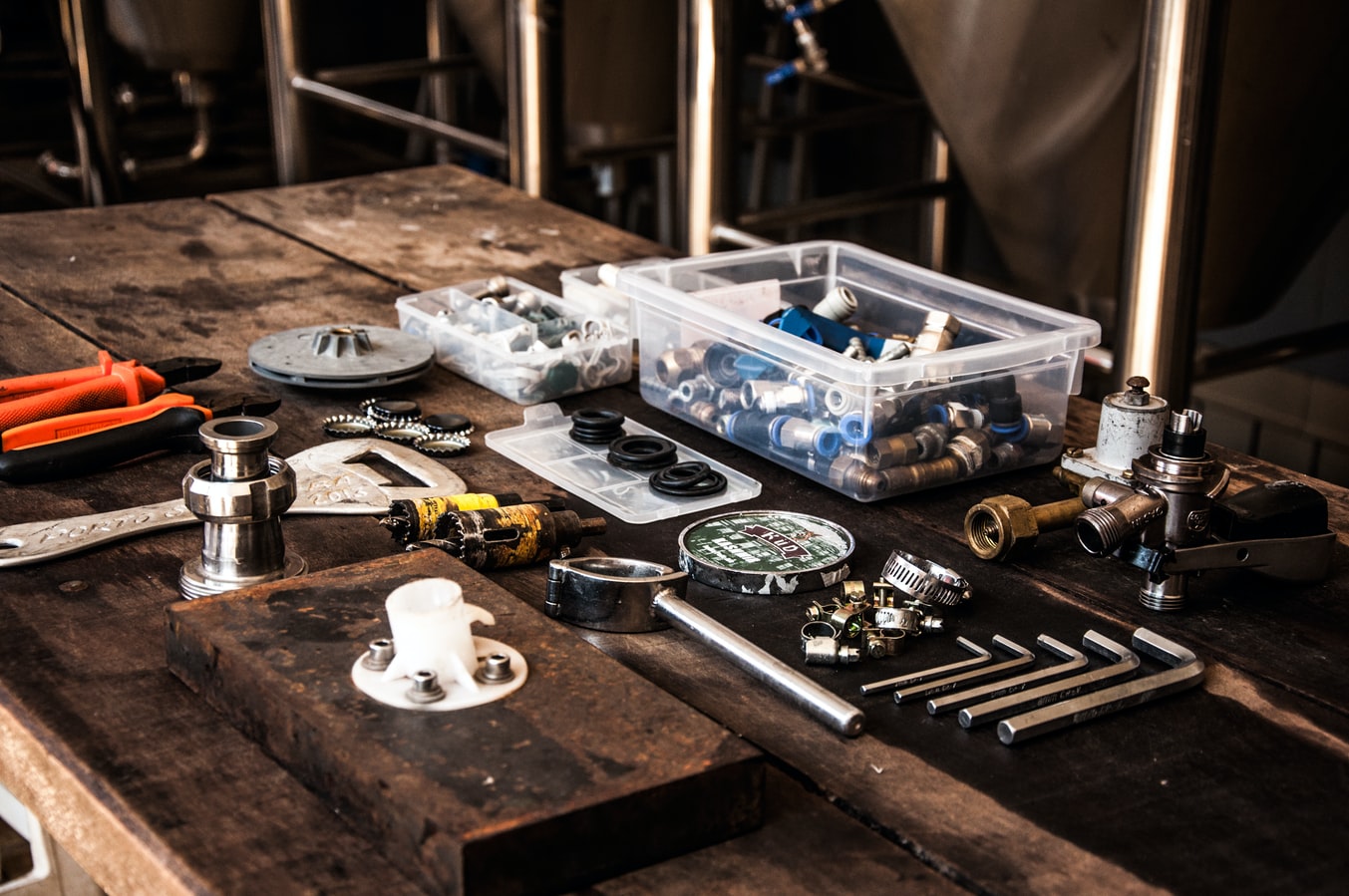
A sewer line serves to bring wastewater away from your household on the outside into the main municipal line. Disposal of waste and wastewater is a crucial measure carried out by sewer lines. Most of the time, they function without any severe problems, and homeowners don’t pay much attention to their work.
Nevertheless, the flawless performance of a sewer line can be interrupted by various issues, causing severe inconvenience and, at times, harming the property and health of its residents. Back up is one of the most typical troubles occurring with sewer lines due to clogs and blockages. The event is no pleasure at all, and it requires urgent measures taking.
This article aims to reveal the main reasons for issues concerning sewer lines, preventive measures homeowners need to take to safeguard themselves from considerable troubles, and various methods to handle them.
Once a backup happens, wastewater and other sewage start flowing into the house through drains in sinks, kitchens, showers, and bathtubs. It can entail disastrous consequences such as considerable damage to the household’s features, electrical grid, and equipment. It demands ample investment to get rid of the problem and its outcomes. Homeowners should keep their sewer lines in appropriate condition, monitor various small issues, and take action once they notice signs of sewers’ incorrect functioning. Consider the most common symptoms of irregular work of the line, caused by the dirt and clogging:
However, the reasons for the sewer back up may be unusual. Among the few of them are the following:
Most commonly, issues concerning sewer pipes are frequent in older households. While a building is nearly 50 years old, a thorough inspection can keep homeowners from considerable damage and investment. Among the most common reasons for the issues to occur are long-accumulating mineral build-up, hair clogs, grease from cooking, food debris, which lead to blockages and back-ups. Constantly monitored and regularly inspected pipelines are less likely to face such problems. To perform appropriate maintenance for the aged households, the sewer lines should always be clean and clear from unwanted elements and substances.
Recurring clogs and blockages of sewer pipelines can be a direct signal to schedule a professional inspection. Trees roots’ intrusion and wastewater backups repeating constantly lead to increased chances for more severe damages. In such cases, homeowners should have sewers cleaned more often to avoid adverse outcomes in the future.
While some people can perform sophisticated works on sewer lines, professional plumbers suggest turning to their assistance to complete the jobs, trouble-free, fast, and with the use of advanced technology. Specialists arm themselves with technical equipment such as video appliances and water jets to perform inspection and unclog pipes with high efficiency and no side effects. While some people may find the fees for such works ample, the result will be valuable for the money. All in all, preventive measures generally cost considerably less than those aimed at eliminating severe sewer back-up consequences.
Garbage disposals have a lot of advantages for homeowners as they make it quick and straightforward. However, they are not quite universal and do not accept some of the items people sometimes put in them. Out of tiredness or laziness, some individuals prefer the use of garbage disposal to washing dishes. While it can be comfortable, serious issues can occur.
Among the items that professionals suggest to keep away from garbage disposals are
Of course, modern garbage disposals can digest and pass various leftovers and items of different origin, but plumbing specialists strongly recommend using a trash bin instead.
As to oils and fats, they change their aggregate state while inside the drain and accumulate, leading to considerable build-ups that are hard for even hot water to penetrate. After that, a clog occurs, and the flow of water decreases or stops entirely.
Prevention is vital in any case. Get rid of oils and grease using paper towels. They are easy to dispose of, which will save drains from clogging, and dishes will be clean, too.
Plumbing professionals highly suggest avoiding getting tissues and other related items into the toilet bowl. While toilet papers of some kind cannot harm drains and sewers, such things as Kleenex, hard and difficult to flush, pose a threat to your sewer system. While one or two tissues can hardly damage, regularly flushed, they accumulate and result in a clog. Stop doing that to avoid blockages and back-ups.
Big pieces of hard dirt can be dangerous to your sewer pipes as they go down the shower drains, accumulate there, and enter harm to the sewer framework in the long run.
While minor quantities are harmless and can be dissolved by water or soap, large amounts lead to clogging. Pieces of dirt can contain particles of grass and leaves, and even small rocks, that are not easy to detect. These accumulate in pipes and drains, making the sewer system blocked. Save your plumbing features from scratchings and damages, and your household from extra expenses on repairs.
Children and some adults tend to put various hard objects into the shower or kitchen drains, toilets, and sinks. Odd objects like parts of toys or pens getting into drains, cause them to clog and entail more significant problems with drainage.
One robust way to avoid such occurrences can be teaching your children not to leave foreign items in drains. Show them flushable objects and make them realize the dangers of doing so. Another solution can be in buying covers for drains. Simple as it is, it works effectively in most cases.
Even toilet paper can be a danger to your sewer pipeline. Homeowners who use ample paper quantities can face the problem of it accumulating in a toilet trap or drains. This will cause damage and can even put the features out of order. The reduced use of toilet paper is one sustainable option. It is an ecologically reasonable and contemporary solution to avoid clogs.
While most kinds of toilet paper are flushable, homeowners should avoid the overuse. A double flush can reduce risk, as well.
Common as it is, clots of hair can seriously interfere with the work of your plumbing. As they are stuck in drains, water flow stagnates, and the clog builds up. In time, even minor clots grow and lead to clogged drains.
Dissolving solutions can help you fix the hair problem in the drainage system; however, large hair clogs require professional measures.
To prevent hair from getting into drains, use drain covers. This solution is cheap and straightforward to use and replace with time but will save you from more significant issues and expenditure to solve them. Once the clog appears, use chemicals to eradicate it.
Soap sediments building up inside drains is another common reason for clogging. For example, some types of soap, like bar soap, can be more dangerous in that respect than the others. Despite the pleasant smell and unique design, this kind of soap leaves slick sediment on pipes. As it accumulates inside, with time, it grows large enough to bar the water flow. The most natural solution is to be careful with the choice of soap and turn to liquid ones. You can also clean drains more often to avoid clogs.
Disposing of feminine products by flushing them down the toilet can considerably interfere with the work of your plumbing features and sewer pipes. While they are far more dangerous than tissues and towels, some homeowners still underestimate their danger.
Things like tampons amplify in water and block the water flow and make it hard for you because DIY methods may not work out. If this is the case, you should contact professional plumbers as soon as possible.
Do not oversee the instruction of the use of toilets and feminine products if you want to prevent leaks and ample damages to your household.
Water in some regions can be oversaturated with mineral elements that can accumulate as sediment inside pipes and drains and become a reason for blockages and leaks. A water softener can be one way out of the issue. Another one is performing regular cleaning to prevent minerals from building up. If you clean pipes and drains rarely, this can lead to more considerable build-ups and, subsequently, more painful and expensive solutions.
Many homeowners even don’t know that trees’ roots can be dangerous for their plumbing features and sewer pipes. They can penetrate canals and start expanding within them, bringing about blockages and destroying the pipes entirely. In most such cases, water flow decreases, and drainage issues occur.
Most solutions for the case are quite expensive and require excavation or pressure jet’s use or even the replacement of the entire framework.
Keeping the drains and pipes in appropriate condition and a close look at the trees growing outside of your household are key recommendations to prevent adverse outcomes.
Most of the issues listed above can hardly cause any danger if you are tech-savvy or have considerable experience in plumbing. Some of them are fairly easy to solve without any professional assistance. You can arm with a plunger or chemical solution to clean and unclog your drains and pipes. Once a problem seems to be with a sewer line, this can demand a professional plumbers team. While DIY techniques are less expensive, you can save up more in the long term with licensed specialists.
To avoid severe shortcomings and damage your sewer line and other plumbing features in your household, contact a team of highly-educated plumbers. They will do all the work with high efficiency and at a reasonable price. They also use advanced technologies and instruments to attend to the issues, like ‘snakes’, cameras to do inspections, and hydro jets that increase performance and accelerate the results.
Contact our team of certified plumbers and keep the plumbing system in your household in perfect condition. Our specialists are trustworthy and can handle issues of any difficulty and in no time!
I bring over 9 years of dedicated plumbing experience to the table. As a seasoned professional in the plumbing industry, I've tackled a wide range of projects, from residential repairs to large-scale commercial installations.

